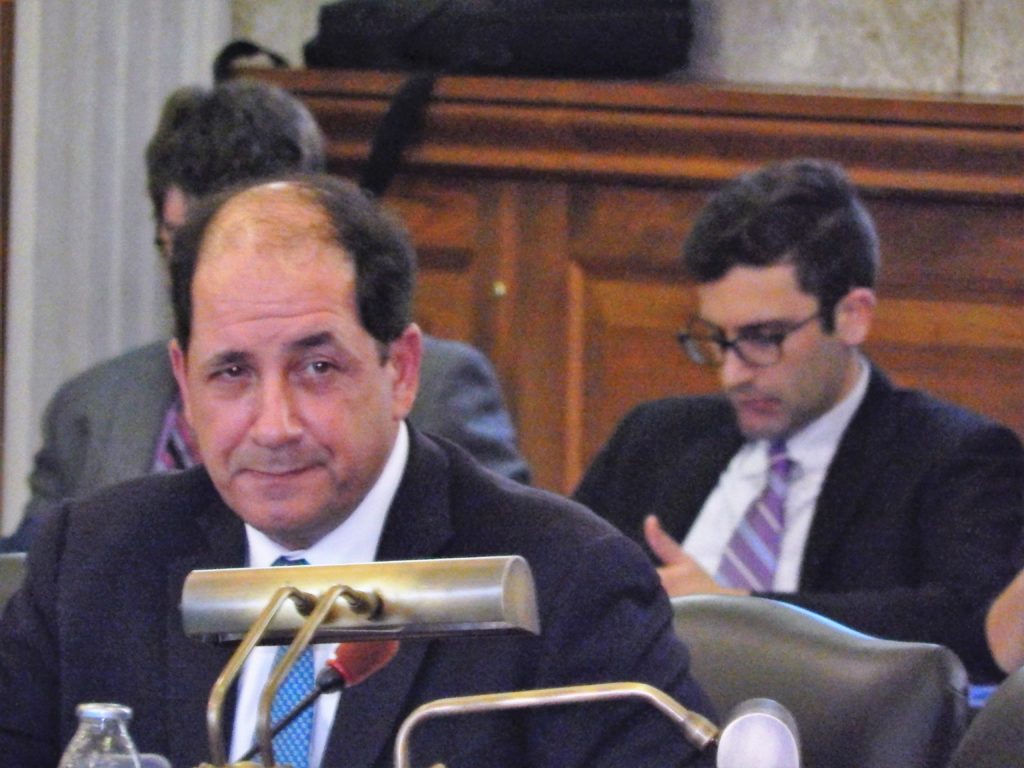
On Monday, August 26th, Princeton joined Jersey City, Red Bank, and Hoboken by taking formal action in favor of Ranked-Choice Voting (RCV). The Mayor and Council of Princeton unanimously passed a resolution expressing support for S1622/A4042 which would authorize the use of Ranked Choice Voting in municipal and school board elections. This resolution also expresses support for the use of ranked-choice voting in Princeton’s municipal and school board elections once the bill is approved by the state. RCV as a movement is gaining momentum and catching on in New Jersey, and with good reason.
Ranked-choice voting is a voting process which allows voters to rank multiple candidates on their ballot in order of preference, and requires that a winning candidate receive support from a majority of voters. RCV is used across the globe, has been adopted statewide in Maine and Alaska, and is used in New York City and cities across the country. Supporters tout RCV as a way to ensure voters’ opinions are more accurately reflected by election results, as well as to address issues of political polarization, “strategic voting” and the “spoiler effect” that frustrate voters and candidates alike every election cycle.
Princeton Council President Mia Sacks issued the following statement on behalf of the council: “Princeton’s local Democratic club, the Princeton Community Democratic Organization (PCDO), which endorses candidates, and the Princeton Democratic Municipal Committee, which determines ballot placement, have successfully used ranked choice voting for local candidates for the last half decade. Princeton Council supports measures that are intended to empower voters and broaden representation in government at the local and state level.”
“A wave of support for Ranked-Choice Voting is sweeping our nation. It’s the law for elections in Maine and Alaska and scores of cities and towns across the country. Everyday citizens say they like the choice ranking candidates gives instead of being forced to pick the lesser of two evils.” stated David Goodman from Represent Us NJ, which played a leading role in working with the council to get this on the agenda.
“I am delighted that Princeton is joining Hoboken, Red Bank, and Jersey City and passing a resolution this evening to allow for RCV in municipal and school board elections once a referendum is approved by the voters. This is a great step forward towards a healthier democratic process at a time when politics is becoming increasingly divisive. Now is the time to work together to create a system where voters of all backgrounds can feel represented. RCV is integral to that system, and the time to do so is now.” said State Senator Andrew Zwicker, who represents New Jersey’s 16th legislative district, which encompasses Princeton. Zwicker has been a staunch supporter of this resolution and is the primary sponsor of Senate bill S1622.
***********
Voter Choice NJ (VCNJ) is a 501(c)(3) nonprofit organization focused exclusively on nonpartisan education and advocacy for ranked-choice voting (RCV). VCNJ is a completely volunteer based organization. It runs local campaigns for RCV across the state, and coordinates advocacy on RCV at the state level.
(Visited 12 times, 12 visits today)
Princeton, a city known for its prestigious university and rich history, has recently implemented a ranked-choice voting ordinance in an effort to improve its electoral process. This new system, also known as instant-runoff voting, allows voters to rank candidates in order of preference rather than just choosing one candidate.
Ranked-choice voting is not a new concept, but it has gained popularity in recent years as a way to ensure that the candidate with the broadest support among voters wins the election. In a traditional election, the candidate with the most votes wins, even if they do not have a majority of the votes. This can lead to situations where a candidate is elected with less than 50% of the vote, which may not accurately reflect the will of the electorate.
With ranked-choice voting, voters have the opportunity to express their preferences more fully. If no candidate receives a majority of first-choice votes, the candidate with the fewest first-choice votes is eliminated, and their votes are redistributed to the remaining candidates based on the voters’ second choices. This process continues until one candidate receives a majority of the votes.
Proponents of ranked-choice voting argue that it encourages candidates to appeal to a broader range of voters and reduces negative campaigning, as candidates are incentivized to reach out to supporters of their opponents in order to secure second-choice votes. It also eliminates the need for costly runoff elections, as the instant-runoff process ensures that a candidate is elected with a majority of the votes.
Princeton’s decision to implement ranked-choice voting reflects a growing trend towards electoral reform in cities across the country. In recent years, cities like San Francisco, Minneapolis, and Santa Fe have adopted ranked-choice voting in municipal elections, with positive results. Supporters of the system believe that it leads to more representative and inclusive elections, where candidates are elected with the support of a majority of voters.
While ranked-choice voting may take some time for voters to adjust to, it has the potential to improve the democratic process and ensure that elected officials truly represent the will of the people. As Princeton joins the ranks of cities embracing this innovative electoral system, it will be interesting to see how it impacts future elections and shapes the political landscape in the city.



